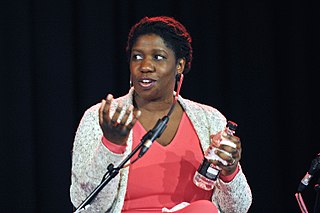A Quote by Cornelius Van Til
I shall not convert you at the end of my argument. I think the argument is sound. I hold that belief in God is not merely as reasonable as other belief, or even a little or infinitely more probably true than other belief; I hold rather that unless you believe in God you can logically believe in nothing else.
Related Quotes
The assumed instinctive belief in God has been used by many persons as an argument for his existence. But this is a rash argument, as we should thus be compelled to believe in the existence of many cruel and malignant spirits, only a little more powerful than man; for the belief in them is far more general than in a beneficent deity.
Religion becomes a matter of belief, and belief acts as a limitation on the mind; and the mind then is never free. But it is only in freedom that you can find out what is true, what is God, not through any belief; because your belief projects what you think God ought to be, what you think ought to be true. If you believe God is love, God is good, God is this or that, your very belief prevents you from understanding what is God, what is true.
The belief in God is not therefore based on the perception of design in nature. Belief in design in nature is based upon the belief in God. Things are as they are whether there is a God or not. Logically, to believe in design one must start with God. He, or it, is not a conclusion but a datum. You may begin by assuming a creator, and then say he did this or that; but you cannot logically say that because certain things exist, therefore there is a God who made them. God is an assumption, not a conclusion. And it is an assumption that explains nothing.
God is all-loving, all-knowing and everywhere, and we possess those qualities. We are actually extremely powerful beings, yet we seem to fear being powerful so we hold ourselves back. However, in truth, we are one with God and each other. The belief that we are separated from God and other people is just that: a belief.
By the age of fifteen, I had convinced myself that nobody could give a reasonable explanation of what he meant by the word 'God' and that it was therefore as meaningless to assert a belief as to assert a disbelief in God. Though this, in a general way, has remained my position ever since, I have always avoided unnecessarily to offend other people holding religious belief by displaying my lack of such belief, or even stating my lack of belief, if I was not challenged.
Obviously, if theism is a belief in a God and atheism is a lack of a belief in a God, no third position or middle ground is possible. A person can either believe or not believe in a God. Therefore, our previous definition of atheism has made an impossibility out of the common usage of agnosticism to mean "neither affirming nor denying a belief in God."
If you think your belief is based upon reason, you will support it by argument rather than by persecution, and will abandon it if the argument goes against you. But if your belief is based upon faith, you will realize that argument is useless, and will therefore resort to force either in the form of persecution or by stunting or distorting the minds of the young in what is called 'education.'
It is commonly said that if rational argument is so seldom the cause of conviction, philosophical apologists must largely be wasting their shot. The premise is true, but the conclusion does not follow. For though argument does not create conviction, the lack of it destroys belief. What seems to be proved may not be embraced; but what no one shows the ability to defend is quickly abandoned. Rational argument does not create belief, but it maintains a climate in which belief may flourish.
I am confident that those who believe in belief are wrong. That is, we no more need to preserve the myth of God in order to preserve a just and stable society than we needed to cling to the Gold Standard to keep our currency sound. It was a useful crutch, but we've outgrown it. Denmark, according to a recent study, is the sanest, healthiest, happiest, most crime-free nation in the world, and by and large the Danes simply ignore the God issue. We should certainly hope that those who believe in belief are wrong, because belief is waning fast, and the props are beginning to buckle.
We did not choose to believe that personal choice is the highest human virtue. Rather, we were taught, formed, forced to believe nothing is important in life other than that which we have personally chosen. The irony is that the belief that nothing is important in life other than that which we have personally chosen is a belief that we have not personally chosen! The supermarket and shopping mall have been our school.
As belief shrinks from the world, it is more necessary than ever that someone believe. Wild-eyed men in caves. Nuns in black. Monks who do not speak. We are left to believe. Fools, children. Those who have abandoned belief must still believe in us. They are sure they are right not to believe but they know belief must not fade completely. Hell is when no one believes.
A genuinely persuasive argument does not merely tell you that you are wrong about everything. It doesn't just beat on you from the outside. It comes inside your belief system, as it were, and affirms something you believe strongly. And then it says - well if you believe this (A) then why in the world can't you see that B is true?








































